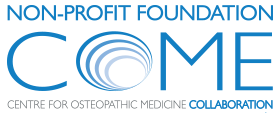A national cross-sectional survey of the attitudes, skills and use of evidence-based practice amongst Spanish osteopaths
Background
Although evidence-based practice (EBP) is largely supported across healthcare professions, its implementation in manual therapy professions such as osteopathy remains limited and debated. There is currently little knowledge of how Spanish osteopaths relate to EBP.
Objectives
The main aim of this study was to investigate the attitudes, skills and use of EBP among Spanish osteopaths. A secondary aim was to identify barriers and facilitators for the adoption of EBP in the Spanish osteopathic context.
Methods
National cross-sectional survey of Spanish osteopaths registered and non-registered to an osteopathic association in Spain. Eligible participants were invited by a range of recruitment strategies including email and social media campaigns to complete the Spanish-translated Evidence-Based practice Attitude and utilization Survey (EBASE) anonymously online.
Results
A total of 567 osteopaths completed the survey which represents an approximate response rate of 9%. Participant’s attitudes toward EBP were largely positive. Most respondents agreed or strongly agreed that EBP was necessary in the practice of osteopathy (89.6%) and that professional literature and research findings were useful to their day-to-day practice (88.9%). Levels of perceived skill in EBP were reported as low to moderate with lowest levels for items related to ‘research conduct’. Except reading/reviewing professional literature and using online search engines to find practice-related literature, participant engagement in all other EBP-related activities was generally infrequent. The perceived proportion of clinical practice that was based on clinical research evidence was reported to be very small. Main barriers to EBP uptake included a lack of clinical evidence in osteopathy and insufficient skills for applying research findings. Main facilitators of EBP uptake included access to full-text articles, internet at the workplace and online databases.
Conclusions
Spanish osteopaths were largely supportive of evidence-based practice, had low to moderate skills in EBP and engaged in EBP activities infrequently. Formal regulation of the profession in Spain and the inclusion of osteopathic programs into the university sector would potentially improve EBP skills and use.







